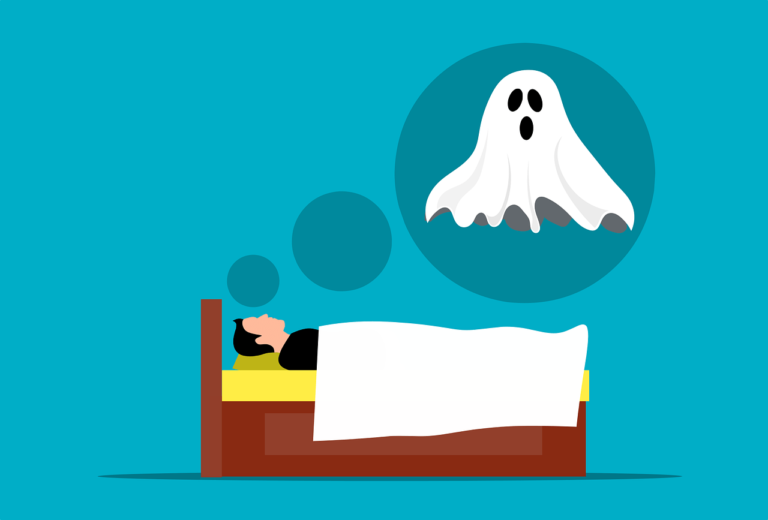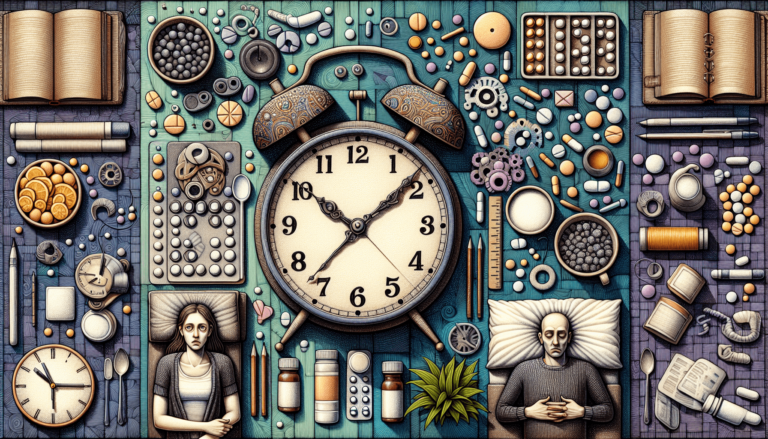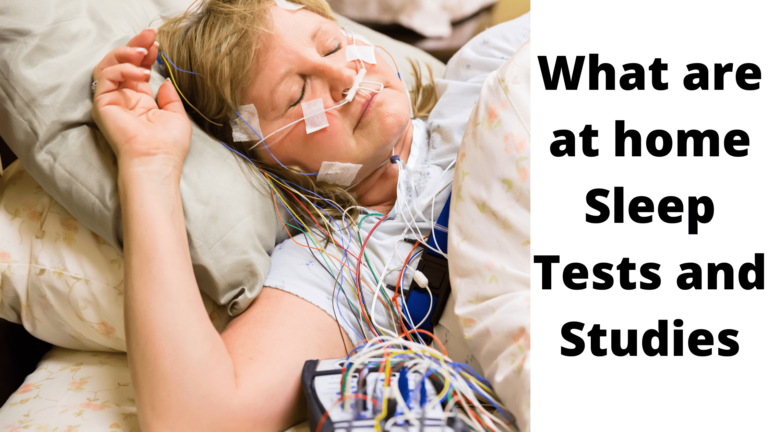What Are The Risk Factors For Developing Sleep Disorders In New York City?

Living in New York City, you might find it challenging to escape the bustling energy and constant activity that define the city that never sleeps. When it comes to the risk factors for developing sleep disorders in New York City, the relentless pace of urban life stands out prominently. Be it the high-stress environment, noise pollution, or irregular work hours, these factors collectively contribute to a higher prevalence of sleep disorders among city dwellers. Vector Sleep Diagnostic Center is your haven for overcoming these challenges. Under the expert guidance of Dr. Dmitriy Kolesnik, the center offers a compassionate and comprehensive approach to diagnosing and treating sleep disorders tailored to your unique needs.
For more detail on how urban living impacts sleep and the expert care available, read on. Have you ever wondered why sleep disorders seem so prevalent in New York City? Maybe it’s the city that never sleeps, but if that’s the case, what keeps its residents awake at night?
Studies show that a variety of risk factors for sleep disorders uniquely affect New Yorkers. Some are common to urban settings globally, while others are unique to the Big Apple’s lifestyle and environmental conditions. In this friendly discussion, we will dive into these various risk factors and discuss how you can manage these challenges. Plus, we’ll explore the invaluable role of Vector Sleep Diagnostic Center in helping residents address their sleep concerns.
Urban Lifestyle and Sleep Disorders
The 24/7 City Life
New York City runs at a pace that is unlike any other place in the world. With late-night restaurants, bars, and entertainment options, residents often adopt irregular sleep schedules. This lifestyle can lead to disrupted circadian rhythms and disorders such as insomnia.
Work Stress and Sleep
Let’s face it: working in New York City can be incredibly stressful. The demanding job market and high-stakes careers contribute to elevated stress levels, which in turn affect your sleep. Chronic stress is a significant risk factor for insomnia and other sleep disorders.
Noise Pollution
In a city where honking horns, emergency sirens, and construction noise are commonplace, it’s no surprise that noise pollution can greatly impact sleep quality. Interrupted sleep due to noise can lead to long-term sleep issues, including difficulty falling asleep and staying asleep.
Light Pollution
New York is famous for its bright lights and billboards, but all this artificial light can interfere with your sleep cycle. Light pollution, particularly at night, can suppress the production of melatonin, a hormone that regulates sleep-wake cycles, thereby contributing to various sleep disorders.
Environmental and Socioeconomic Factors
Air Quality
Poor air quality is more than just a minor inconvenience; it’s a significant health risk. In New York City, elevated levels of air pollution can lead to respiratory issues that disrupt sleep, such as sleep apnea.
Housing Conditions
Space is at a premium in New York, which means many residents live in smaller apartments, sometimes in noisy or crowded conditions. Suboptimal housing conditions can exacerbate sleep disturbances and anxiety, increasing the risk of developing sleep disorders.
Socioeconomic Stressors
New York is known for its high cost of living. Financial and social stressors like job insecurity, high rent, and an overall fast-paced lifestyle can contribute to chronic stress, which has a direct impact on sleep quality and duration.
Behavioral and Social Factors
Substance Use
It’s not uncommon for New Yorkers to unwind with a drink after a long day or to rely on caffeine to kick-start their mornings. However, the consumption of alcohol, caffeine, and other substances can significantly affect your sleep patterns, leading to disorders like insomnia.
Diet and Sleep
Your diet can also influence your sleep quality. A diet high in sugars and processed foods can interfere with your sleep, and late-night eating is particularly harmful. In a city with endless dining options available around the clock, making poor dietary choices can be tempting and detrimental to your sleep health.
Technological Influence
Screen Time
In today’s digital age, screen time is nearly unavoidable. The blue light emitted by smartphones, tablets, and computers can interfere with your body’s natural sleep cycles, making it difficult to fall asleep at night. For many New Yorkers, lengthy commutes and hectic schedules mean that winding down with a device is often part of their nighttime routine, contributing to these issues.
Social Media
The pressures and distractions of social media can also keep you awake. The need to stay connected and the fear of missing out are very real and can lead to poor sleep habits and sleep disorders.
Health and Wellness Factors
Comorbid Conditions
Individuals who suffer from chronic illnesses, such as cardiovascular disease, diabetes, or depression, are more likely to experience sleep disorders. The coexistence of these conditions further complicates diagnosis and treatment.
Mental Health
New York City’s high-stress environment can exacerbate mental health conditions such as anxiety and depression. These mental health issues are closely linked to sleep disorders, creating a vicious cycle where poor mental health leads to poor sleep, which in turn worsens mental health.
Age and Gender Factors
Age
Sleep patterns naturally change as you age. Older adults are more likely to suffer from sleep disorders due to changes in sleep architecture and the presence of other chronic health conditions. Considering New York’s significant population of older adults, this demographic is particularly at risk.
Gender
Women are more likely to experience sleep disorders due to hormonal changes, particularly during pregnancy and menopause. Additionally, social and cultural expectations often result in women experiencing higher levels of stress, contributing to their risk of developing sleep disorders.
Other Contributing Factors
Genetics
Genetics can play a role in the development of sleep disorders. If your family has a history of disorders like sleep apnea or insomnia, you may be at a higher risk.
Personal Habits and Routines
Your personal habits and routines impact your sleep more than you might realize. Irregular sleep schedules, lack of physical activity, and poor sleep hygiene can all contribute to sleep disorders.
Addressing Sleep Disorders: Vector Sleep Diagnostic Center
About Vector Sleep Diagnostic Center: Where Expertise and Compassion Converge
If you’re grappling with sleep issues in New York City, the Vector Sleep Diagnostic Center could be your beacon of hope. Led by Dr. Dmitriy Kolesnik, a veteran sleep medicine specialist, the center is dedicated to providing comprehensive care. Dr. Kolesnik has over two decades of experience and is board-certified by the American Board of Sleep Medicine, Psychiatry, and Neurology. Starting his medical journey at St. Petersburg Medical School in Russia, he moved to New York in the early 1990s to further his training and expertise. His areas of specialization include Sleep Medicine and Neurology.
Academic and Clinical Excellence
Not just competent, Dr. Kolesnik has also been a Clinical Instructor in Neurology at the Weill Medical College of Cornell University since 2004. His academic involvement ensures he stays updated with the latest research and treatment modalities, enriching his approach to patient care.
A Legacy of Comprehensive Care
As the Medical Director at Vector Sleep Diagnostic Center since 2009, Dr. Kolesnik has fostered an environment where cutting-edge technology and evidence-based practices take center stage. The staff is equally committed to providing personalized, effective, and compassionate care to every patient.
Our Mission and Vision
Vector Sleep Diagnostic Center aims to be the definitive resource for sleep health. The center is guided by ethical patient care and clinical innovation. The goal is to offer unparalleled patient support and diagnostic excellence to those who suffer from sleep disorders.
Sleep Consultation: Your First Step Toward Better Sleep
Your initial sleep consultation at Vector Sleep Diagnostic Center is comprehensive and usually lasts about an hour. This session includes a detailed discussion about your sleep history, lifestyle, and any symptoms you might be experiencing. You may also undergo preliminary tests or fill out questionnaires to help the specialists better understand your sleep patterns.
Comprehensive Sleep Apnea Care
Sleep apnea is a common yet serious sleep disorder that requires specialized care. Vector Sleep Diagnostic Center offers comprehensive services, including CPAP Titration and Durable Medical Equipment (DME) Setup, to ensure you receive the most effective, tailored treatment for your needs.
Specialized Evaluations
Vector Sleep Diagnostic Center provides specialized evaluations designed to address unique sleep challenges. Whether you struggle with more general sleep issues or require detailed examinations, the center’s meticulous approach ensures that you receive targeted and effective treatment plans.
Insomnia Solutions
Insomnia can be debilitating, affecting your overall quality of life. Vector Sleep Diagnostic Center offers specialized evaluations and treatments engineered to address the root causes of insomnia, allowing you to finally enjoy restful nights.
Follow-Up and Continuous Care
Sleep health is a lifelong journey, and Vector Sleep Diagnostic Center is committed to being your lifelong partner in sleep wellness. The follow-up and continuous care program is designed to ensure your treatment remains effective and evolves with your needs.
Sleep Education: Empowering You for Lifelong Sleep Health
Knowledge is power, and Vector Sleep Diagnostic Center believes in empowering you with the information you need for lifelong sleep health. Their sleep education program includes:
- Interactive Workshops: Learn strategies to improve sleep hygiene and manage sleep disorders.
- Educational Brochures: Easy-to-read guides that break down complex sleep topics into digestible information.
- Online Modules: Accessible educational content that you can peruse at leisure.
- One-on-One Counseling: Individual sessions with sleep specialists to address your specific sleep issues.
Sleep Studies
Vector Sleep Diagnostic Center offers a variety of sleep study services aimed at diagnosing and managing sleep disorders effectively. Options include:
- Overnight Polysomnography: An in-depth, overnight test that measures your sleep cycles and stages.
- Home Sleep Apnea Test: A convenient at-home test designed to diagnose sleep apnea.
- Multiple Sleep Latency Test: Evaluates the time it takes for you to fall asleep during the day.
- Maintenance of Wakefulness Test: Assesses your ability to stay awake in a quiet, relaxing environment.
- Specialized Pediatric Sleep Studies: Unique evaluations designed for children’s sleep disorders.
Conclusion
New York City’s unique combination of lifestyle, environmental, and socioeconomic factors significantly contributes to the prevalence of sleep disorders among its residents. Understanding these risk factors is the first step in addressing and managing sleep issues.
Vector Sleep Diagnostic Center serves as a valuable resource for New Yorkers suffering from sleep disorders. With a team led by the highly experienced and academically involved Dr. Dmitriy Kolesnik, the center offers a comprehensive, compassionate, and evidence-based approach to sleep health. Whether you require diagnostic tests, treatments for sleep apnea or insomnia, or continuous care, Vector stands ready to help you achieve better sleep and an improved quality of life.
If you are experiencing sleep problems, don’t wait. Get in touch with Vector Sleep Diagnostic Center today to schedule your initial consultation and take the first step toward better sleep health.
Contact Us Vector Sleep Diagnostic Center Address: 26, 62-60 99th St, Rego Park, NY 11374 Phone: (718)830-2800 Email: vectorsleep@gmail.com
Sleep well, New York!








